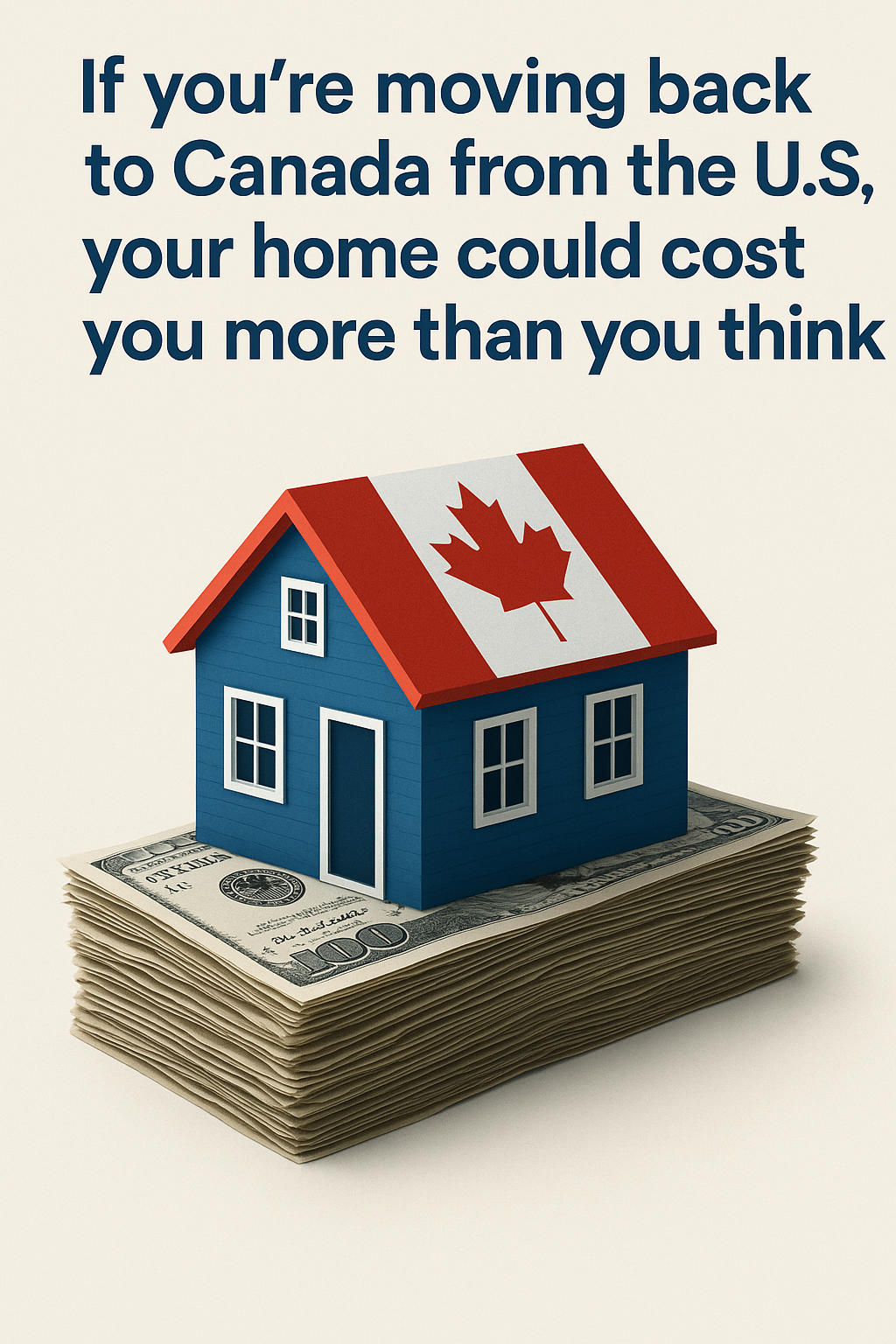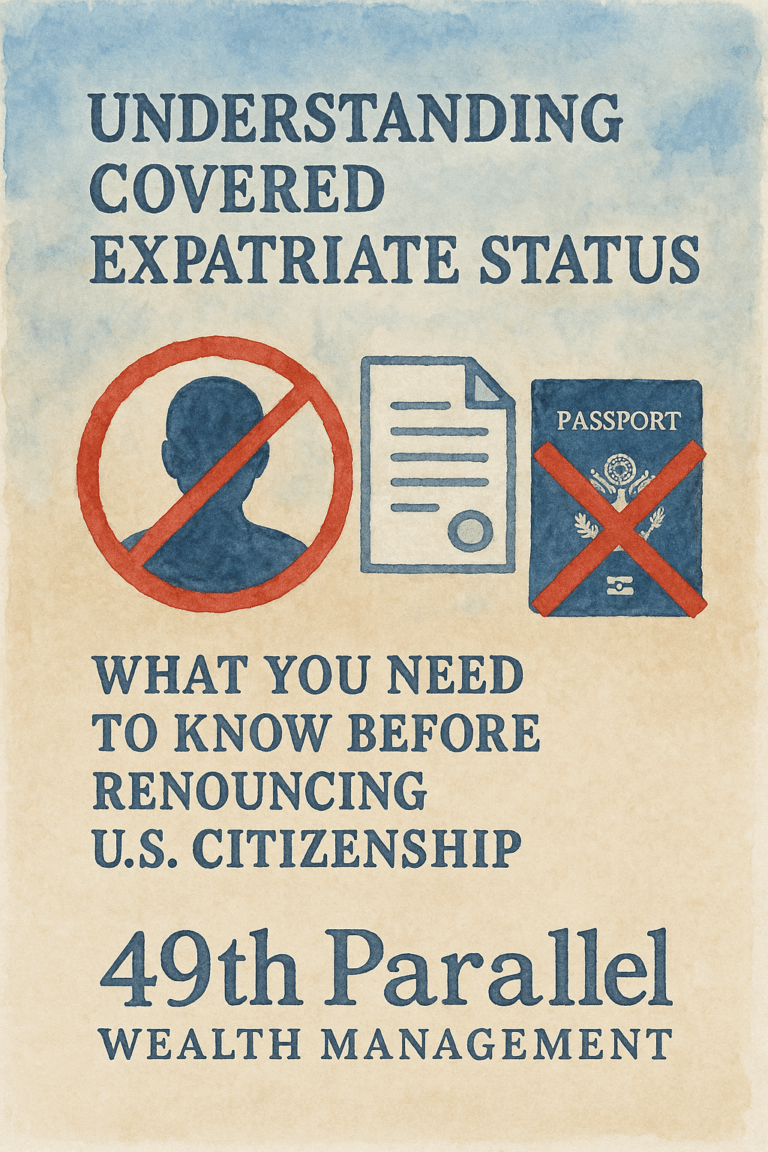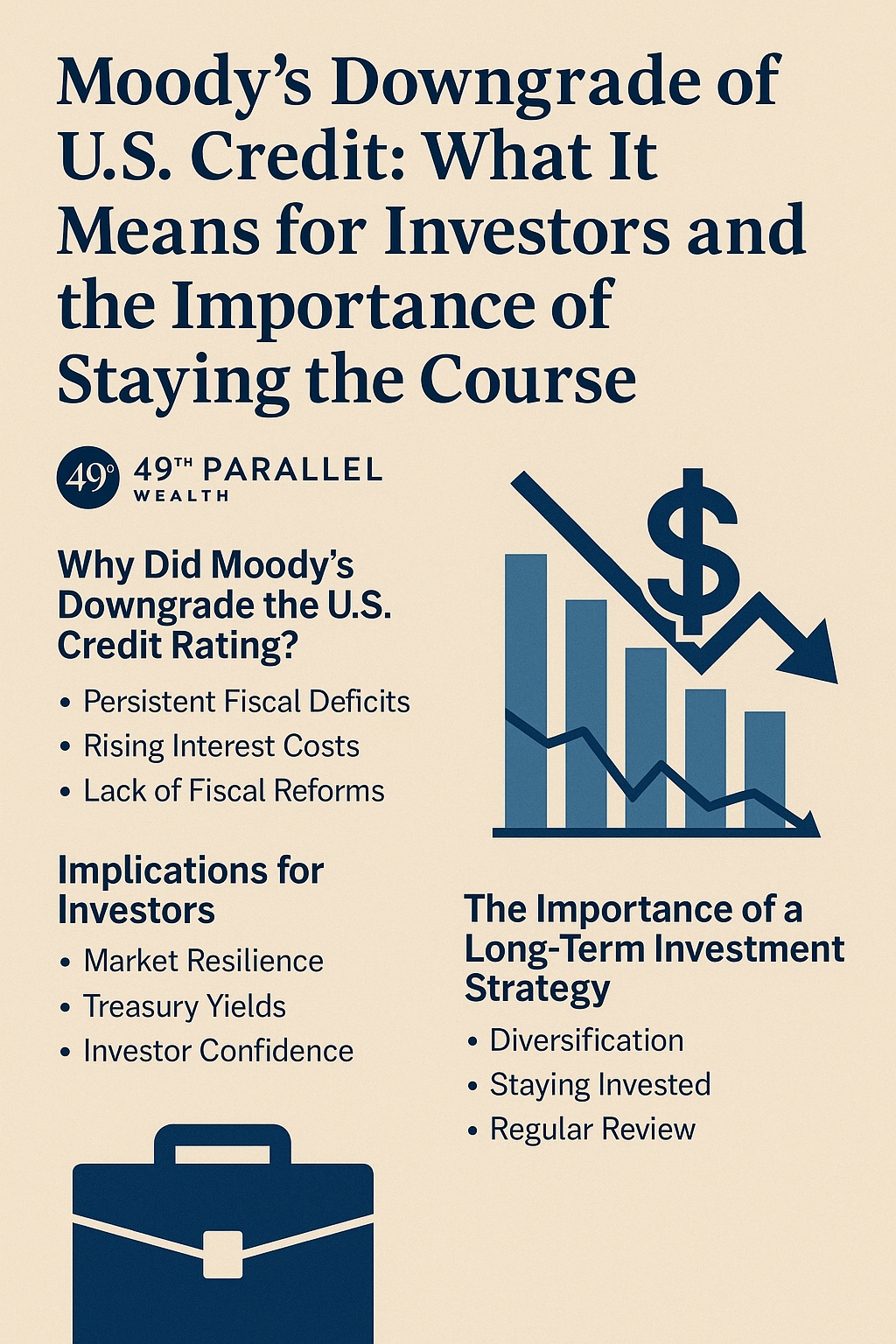 alt="deemed disposition" width="1024" height="1536" />
alt="deemed disposition" width="1024" height="1536" />Deemed disposition is a hidden tax rule that can cost Canadians returning from the U.S. thousands — even if they never sold their home. If you rented out your property while living abroad, the CRA may treat it as if you sold and re-bought it at market value. That means potential capital gains, high marginal tax rates, and a surprise bill just for moving back in.
However, there’s a hidden tax trap that few are prepared for. When you move back and reoccupy your former home, Canadian tax law considers that you have “disposed” of, or sold, your property even though you never sold it.
This is called the change of use deemed disposition tax, and for homeowners coming back from the U.S., it can deliver a six-figure tax bill just when you thought you were settling back into life at home.
Understanding the Deemed Disposition Rules
Under Canadian tax law, a “deemed disposition” occurs when a property’s use changes between business (rental) and personal (primary residence). This happens even if no sale takes place. In the CRA’s eyes, it’s as if you sold the home at its current market value and immediately bought it back — and they want their share of any gains.
Why It Matters: Capital Gains and Top Marginal Rates
In Canada, capital gains have an inclusion rate of 50% — meaning half of the gain is included as taxable income. That half gets stacked on top of your other income for the year, subject to your marginal tax rates.
If your capital gain is large enough — say, from a property in a booming market like Toronto or Vancouver — it can easily push you into the highest combined federal and provincial tax bracket of 50% or more.
Example:
- Original home value (when you moved out in 2020): $1,000,000
- Home value when you return in 2026: $1,700,000
- Capital gain: $700,000
Thus:
- 50% of $700,000 = $350,000 added to your taxable income.
- If you’re in Ontario, your top marginal tax rate in 2025 could be 53.53%.
- You could owe over $187,000 in tax without ever selling your home.
That’s the opposite of a warm “welcome home” many Canadians expect.
Why the Change of Use Tax Hurts Even More in Hot Markets
Cities like Toronto, Vancouver, and Victoria have seen explosive property appreciation over the past decade.
For Canadians who moved away for only a few years, it’s not uncommon for home values to have jumped by hundreds of thousands — even millions — of dollars.
The faster your home’s value rises, the larger the deemed gain — and the higher your unexpected tax liability when you move back.
Unfortunately, many returning Canadians don’t realize they need to budget for this tax event, which can cause:
- Severe cash flow issues
- Forced refinancing of the home to cover the bill
- Unexpected tax debt and penalties if not paid promptly
Can You Avoid or Reduce the Deemed Disposition Tax?
There are a few possible strategies:
- Get a Professional Valuation:
Documenting the fair market value of your home at key dates (especially when it becomes a rental) can help minimize your reported gain and defend your position if CRA audits you. - Plan the Timing of Your Return Carefully:
If you can split large income events across two calendar years, you might avoid stacking all the income in a single high-tax year. - Advanced Tax Planning:
Complex strategies such as trusts, corporate structures, or partial transfers might be appropriate in some cases — but they come with additional costs and risks and must be customized carefully.
 alt="" />
alt="" />Most importantly: get advice from a cross-border tax specialist early, ideally before you leave Canada and again before you return.
For Canadians working in the U.S., returning home should be a time of celebration, not a tax nightmare. But deemed disposition rules around change of use can turn your triumphant return into a costly surprise if you aren’t prepared.
In real estate markets like Toronto or Vancouver, the stakes are even higher.
If you plan to rent your home while abroad and move back into it later, proactive tax planning is absolutely essential. Without it, you might find yourself facing a six-figure tax bill, just for moving back into your own house.
Don’t let tax surprises ruin your homecoming. Plan ahead, get expert advice, and protect what you’ve worked so hard to build.
Call us if you are crossing the 49th parallel. From the Desert to the Tundra, we are your cross-border retirement experts!



